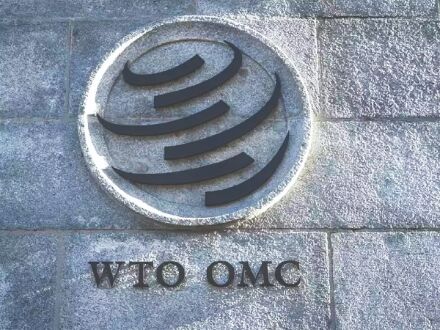'A country can provide fishery subsidies if it maintains stocks at sustainable level'

New Delhi: A member country of the World Trade Organisation (WTO) can provide subsidies to its fishermen if it maintains stocks at a biologically sustainable level, according to a proposal submitted by India last month.
India has also proposed that a country engaged in distant water fishing (fishing beyond 200 nautical miles from its sea shores) cannot provide fishery subsidies for 25 years from the date of entry into force of the fisheries subsidies agreement, an official said.
Fishing in distant waters or in some other country's territory is a major problem when it comes to maintaining fish stocks at sustainable levels. Such activities lead to depletion of fish stocks in the oceans and this happens because of use of highly mechanised vessels or boats for industrial fishing.
This agreement is under discussion among the 164 WTO members in Geneva.
The aim of these negotiations is to discipline subsidies with the overall objective to have sustainable fishing and to eliminate IUU (illegal, unreported and unregulated) fishing subsidies and prohibit subsidies contributing to overcapacity and overfishing.
There are primarily three areas of fishing -- territorial waters (12 nautical miles from the sea shore), EEZ (exclusive economic zones - 200 nautical miles), and high seas. There are certain developed countries which go into high seas for exploiting the fishing stock.
The current proposal submitted by India assumes significance as it has stated that the draft text which is at present under negotiations is unbalanced.
"The present text is unbalanced and only when Indian suggestions (from its proposal) are considered and incorporated suitably, then only it will be a balanced text for negotiations. The present text cannot form the basis of negotiations because it is not balanced. Only when these suggestions are discussed, deliberated and in some manner incorporated in the revised text, then India can start the text-based negotiations," the official said.
In the WTO, member countries negotiate through a text to finalise an agreement. The official added that the current draft text, which is under negotiations, does not provide a conducive policy space for developing and least developed countries (LDCs) that are yet to develop their fishing capacities.
"Therefore, the principle of polluter pays and common but differentiated responsibilities and respective capabilities concept must be applied in line with the popular demand of developing countries made at a meeting on July 15 this year," the official said.
The suggestion of India for a moratorium of 25 years on countries that are engaged in distant water fishing is based on FAO's (Food and Agriculture Organization) code of conduct for responsible fisheries, which was adopted in 1995. It has recognised the issues of overfishing and depletion of
fish stocks.



